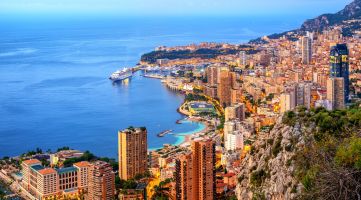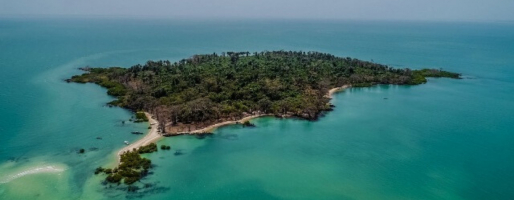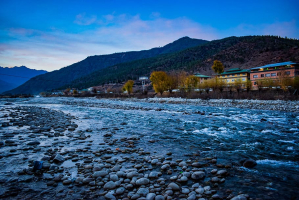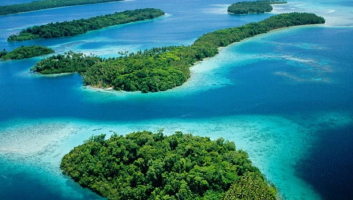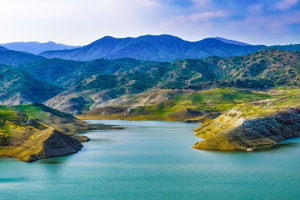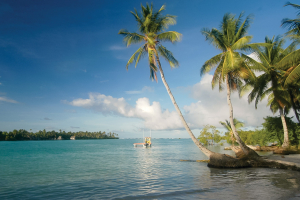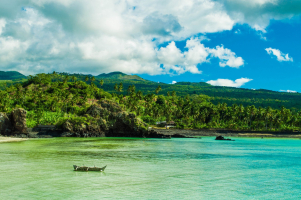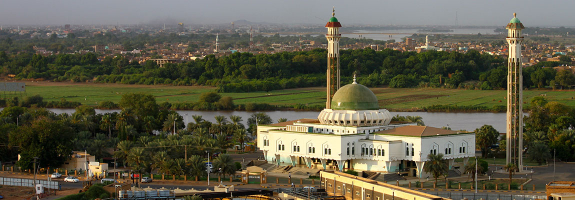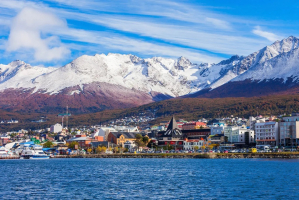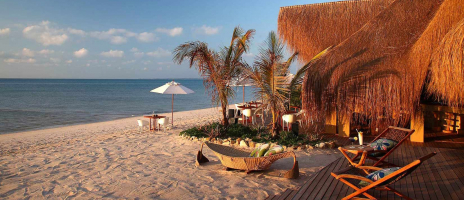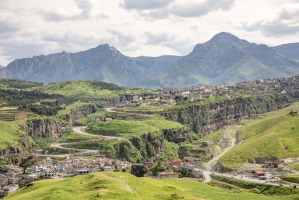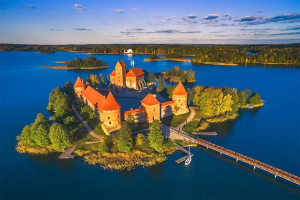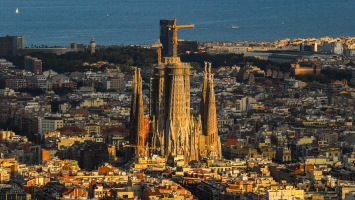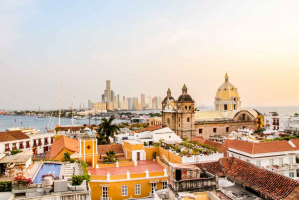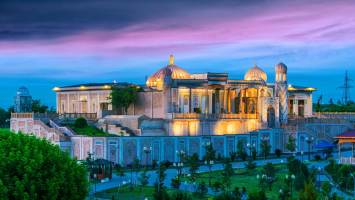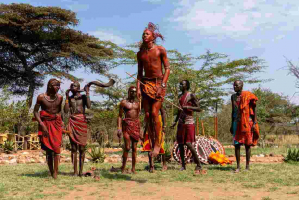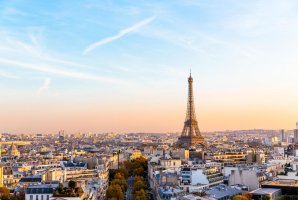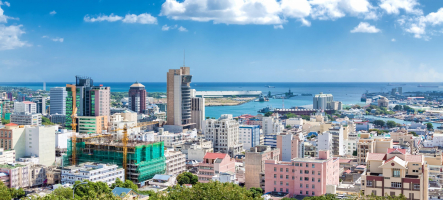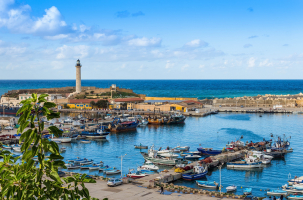Top 10 Things to Know Before Traveling to North Macedonia
Unless you were born in Europe or have previously visited Macedonia, you may be unaware of the existence of this small but lovely country. The oldest lake in ... read more...Europe, the deepest underwater cave in the world, a piece of the cross on which Jesus was crucified, and its own Snake Island are among the highlights of this small piece of land. Here are the 10 useful things to know before traveling to North Macedonia.
-
The way to enter legally is one of the most important things to know before traveling to North Macedonia. The country is not part of the EU or the Schengen area but if you come from any European country, you can enter Macedonia with your passport. If you’re coming from outside of Europe, then you might need a visa depending on your nationality. Macedonia has two airports, one in Skopje (the capital) and one in Ohrid - the second largest city and the tourist hotspot. If you're flying from Europe, Wizz Air is the most affordable option. If you are flying from outside of Europe, consider flying to a larger European city and connecting to a Wizz Air flight from there. This will always be a less expensive option.
The visa must be used for a maximum of 90 days. The time limit for citizens of Turkey, Japan, and Montenegro to stay in a visa-free country is 60 days, while the time limit for citizens of all other countries is 90 days. A multi-entry Schengen visa (valid throughout the Schengen zone) allows any foreign citizen to visit Macedonia and stay for up to 15 days without needing a Macedonian visa. You might be told at the border that you need a visa to enter Macedonia. Remember to keep your cool and ask them to double-check their facts.
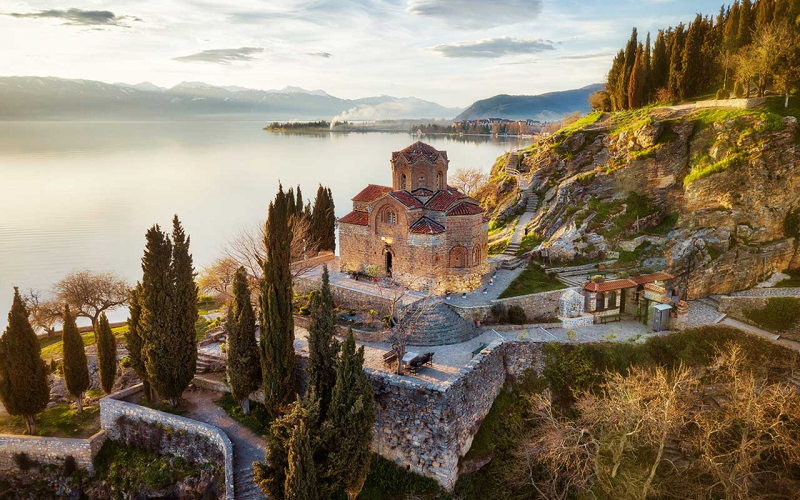
nomadparadise.com 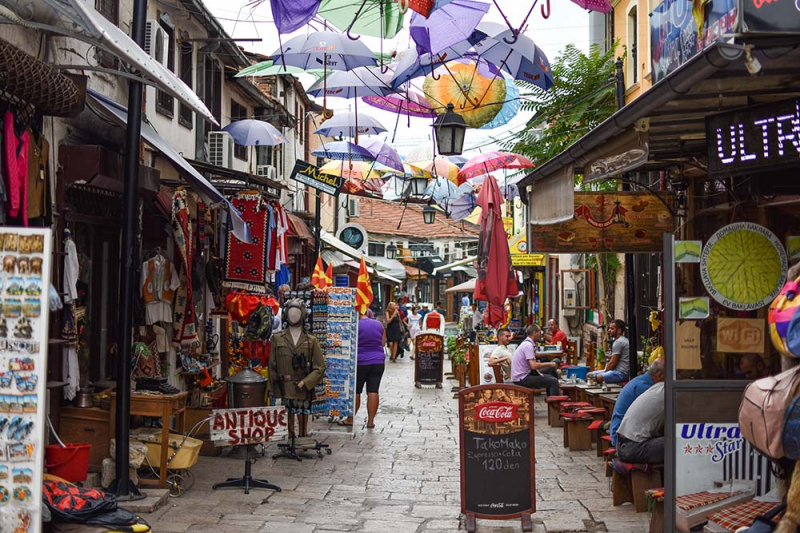
wherefoodtakesus.com -
Macedonian Denar is the country's currency. The currency symbol in Cyrillic is дeн, and the international and official symbol is MKD. 10 denars, 100 denars, 200 denars, 500 denars, 1000 denars, and 2000 denars are the most commonly used banknotes. You can buy breakfast and soda with a 100 denar banknote, for example. 1 denar, 2 denars, 5 denars, 10 denars, and 50 denars are the most commonly used coins. A 50 denar coin can be used to purchase a common breakfast burek or two bus tickets. MKD has a 0.2 percent annual inflation rate.
Besides Denars, another accepted currency is the Euro (1 Euro is about 61.50 Denars). However, you can’t use it to buy goods in supermarkets, grocery stores, shops, or pharmacies. Normal purchases are priced in the national currency. You can use euros to pay for long taxi rides, hotel rooms, car rentals, or petrol station purchases. When it comes to USD or pound sterling, you can only exchange them for denars in one of the many money changers found in any city. Keep in mind that you can’t change Macedonian Denars outside of the country, so make sure you change any money back to USD, Euro, or any other currency before leaving. This is definitely one of the most important things to know before traveling to North Macedonia.
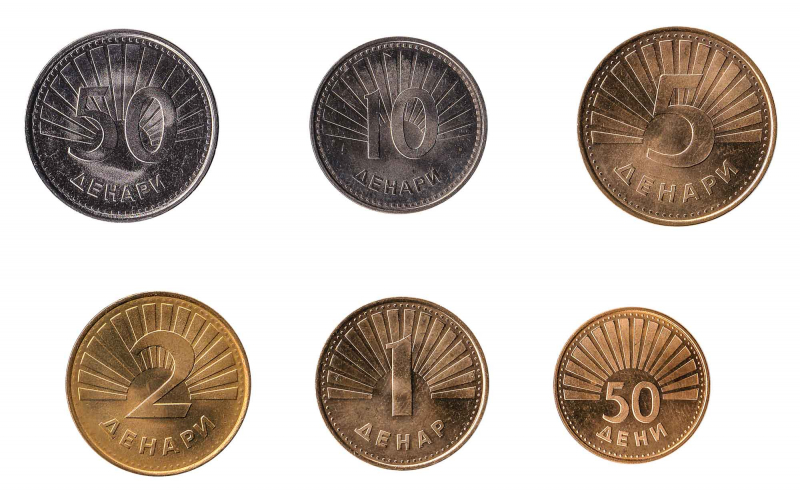
manorfx.com 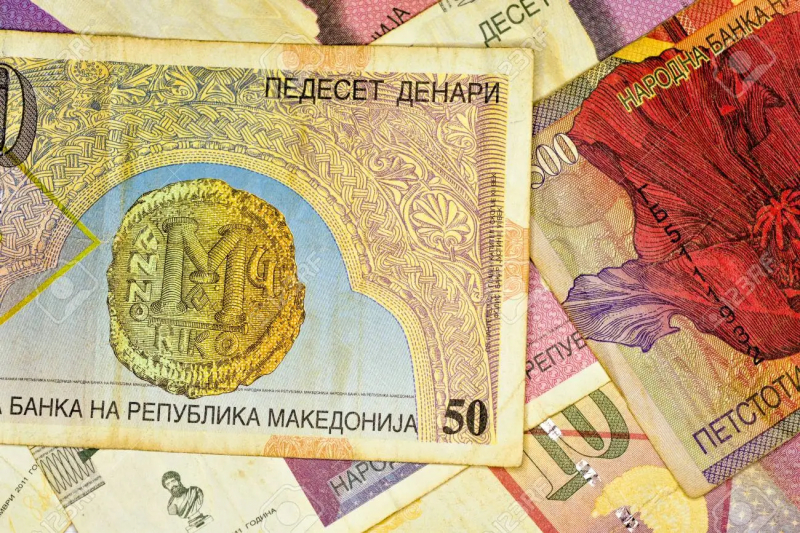
123rf.com -
The most widely spoken foreign language in this country is English. The elderly, on the other hand, are not as fluent in English as children. In most restaurants, hotels, coffee shops, and institutions, however, you'll have no trouble communicating in English with the locals. Although older people working in supermarkets and grocery stores may not speak English, any customer or employee who does will be happy to help you or the cashier.
Even though you can use English in most parts of the country, knowing some local phrases is always a good idea. Here are some useful phrases to keep in mind:
- Zdravo (Здраво) – Hi/Hello.
- Moze da prasam nesto? (Може да прашам нешто) – Can I ask you something?
- Zboruvate angliski? (Зборувате англиски?) – Do you speak English?
- Blagodaram/Fala (Благодарам/Фала) – Thank you/Thanks.
- Izvini (Извини) – Sorry.
- Moeto ime e Marija (Моето име е Марија) – My name is Maria.
- Kako se vikas? (Како се викаш?) – What’s your name?
- Milo mi e sto te zapoznav (Мило ми е што те запознав) – Nice to meet you.
- Ubav den (Убав ден) – Have a nice day.
- Ne znam (Не знам) – I don’t know.
- Ne razbiram (Не разбирам) – I don’t understand.
- Te molam povtori (Те молам повтори) – Please say that again.
- Ve molam (Ве молам) – Please.
- Kolku cini ova? (Колку чини ова?) – How much is this?
- Vikni policija (Викни полиција) – Call the police.
- Cao (Чао) – Bye.
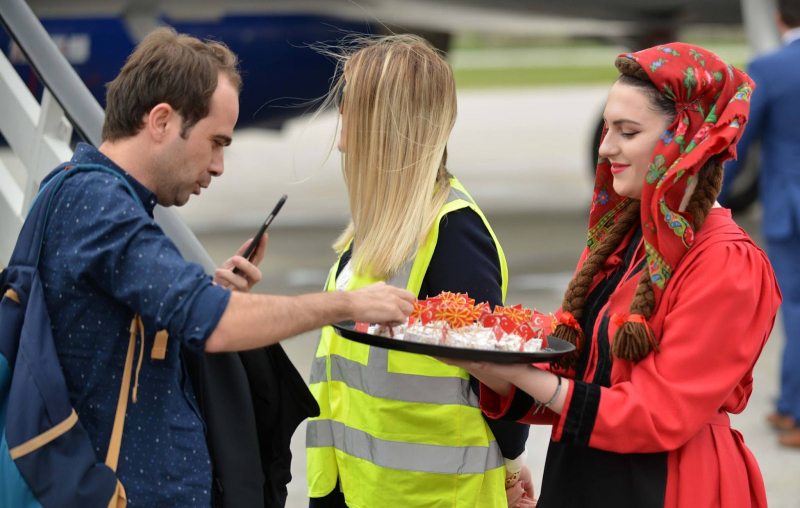
exyuaviation.com 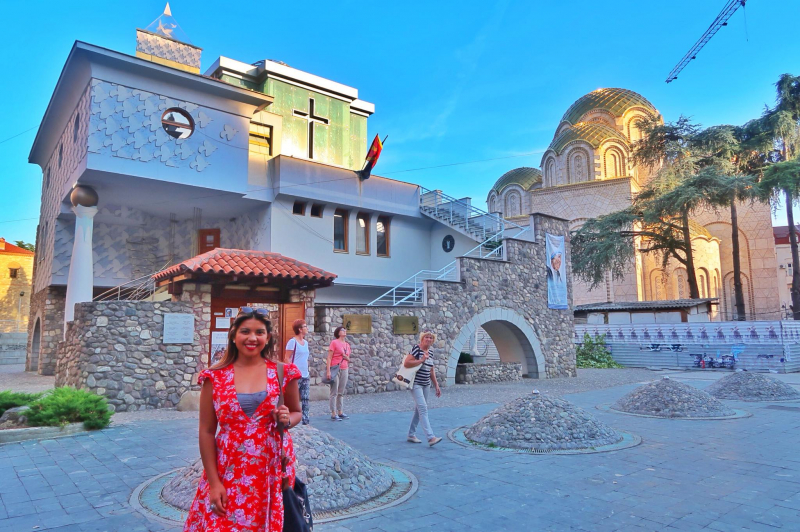
twomonkeystravelgroup.com -
North Macedonia's landscape is mostly mountainous, with the highest point being Golem Korab (2753 m) on the border with Albania. Titov Vrv (2748 m) is the highest mountain in northern Macedonia, with Mal Turcin nearby (2707 m). The majority of the country is a plateau with elevations ranging from 600 to 900 meters. Mountains cover nearly 80% of Macedonia's land area. There are 50 lakes and 34 mountains higher than 2,000 meters in only 25,000 square kilometers. Macedonia now ranks fourth in Europe in terms of average elevation (741 meters), trailing only Andorra, Switzerland, and Austria.
Despite its small size, Macedonia has three breathtaking national parks: Mavrovo, Pelister, and Galicica. These are some of the last places on Earth where you can see a very rare species: the Balkan Lynx. If you enjoy mountains and hiking, there are many completely undiscovered trails throughout the country and the best time to visit is during the spring.
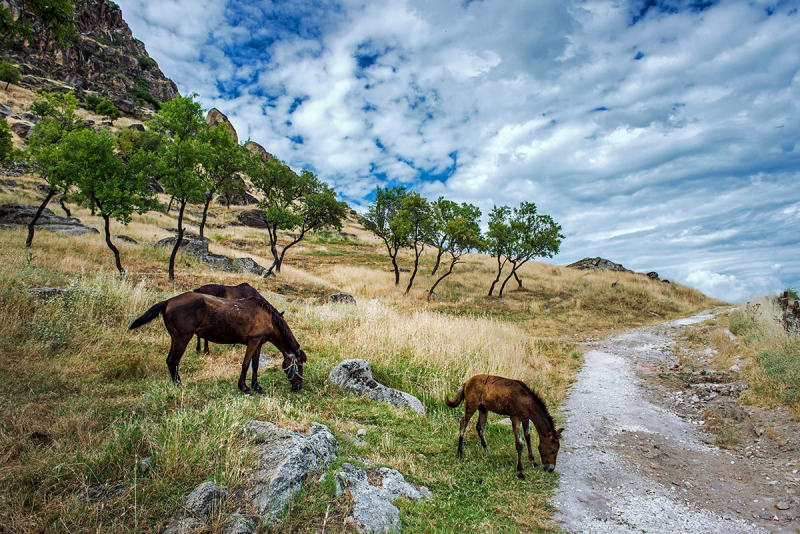
wondermondo.com 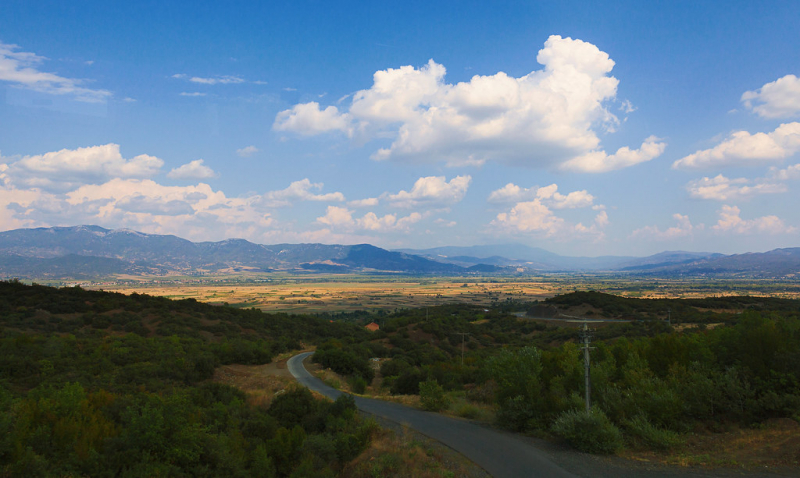
flickr.com -
How to Get Around is one of the most important things to know before traveling to North Macedonia. Because North Macedonia's territory is small (25,713 km2), you can travel by bus, train, or car and arrive at your destination in under 4 hours. You can take a taxi to get around a city quickly and affordably. To avoid scams, make sure you use a licensed taxi company.
The country's well-developed railroad system allows you to travel from one city to another at a low cost. Traveling by bus is also an option, as there are frequent services to most cities in Macedonia at an affordable price. Skopje, Macedonia's capital, has public intercity buses that can take you from one part of the city to another. You can't buy a bus ticket from the driver, but you can buy a коскa (bus pass) from a kiosk and put credit on it.
Many tourists have difficulty finding a kiosk that sells these bus passes, despite the fact that there are many throughout the city, so it's best to ask a local for the location of the nearest one. Because the airport is outside of Skopje, renting a car is a good option, especially if you arrive by plane. It is, however, much more expensive than public transportation. Because the capital is a large city, renting a car will allow you to see all of the sights.
Some of the best car rental companies in Macedonia are:
- Hertz Macedonia
- MIDA rent-a-car
- ABC logistics
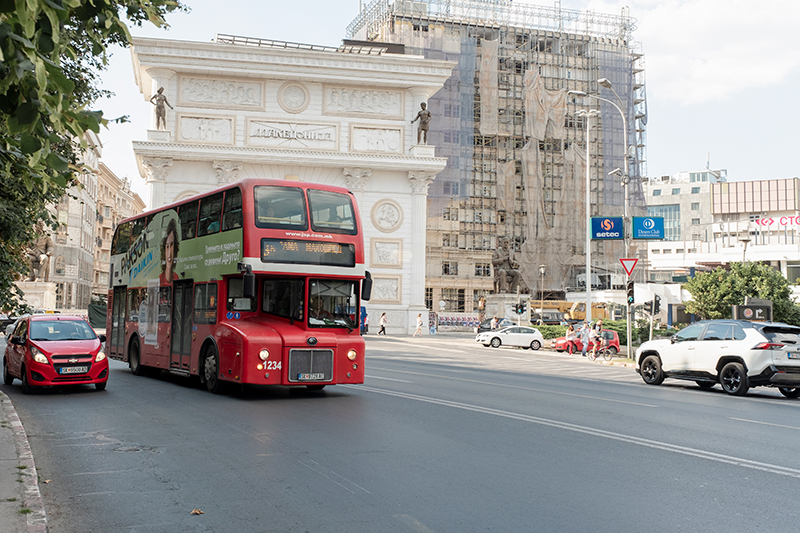
globalfueleconomy.com 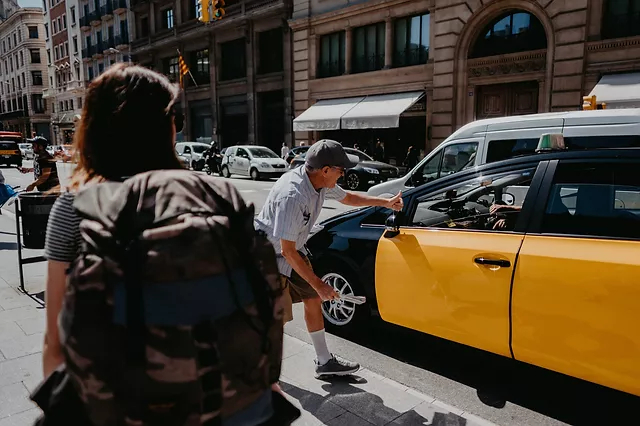
macedontaxiservices.com -
The numerous archaic monastery landmarks, picturesque lakes, and especially the alluring cuisine will captivate visitors to North Macedonia. The rich and vibrant traditional recipes, some of which date back centuries, will conjure up some of the most delectable food you'll ever taste. The majority of Macedonian dishes are made with organic produce, high-quality meat, and dairy. The climate allows you to eat a raw tomato as is, and the flavor will astound you. However, pastry is an important part of Macedonian cuisine. This country, in fact, eat bread with almost any dish you can think of.
Salads and homemade rakija are popular starters among the locals. This is a classic alcoholic drink with a description on the menu. Juicy meat mixed with fresh organic vegetables and served with various types of pastry and bread are also Macedonian favorites. Macedonians are known for their hospitality, so it's not uncommon to see neighbors and friends inviting one another over for a glass of rakija. Great food will be close by wherever you go in North Macedonia. To whet your appetite, there are some of the most popular Macedonian foods and dishes that you must try when visiting this lovely country. Sarma – Stuffed Cabbage Rolls, Tavce Gravce – Baked Beans, Musaka – Moussaka, Pastrmajlija – Macedonian Pizza are some examples.
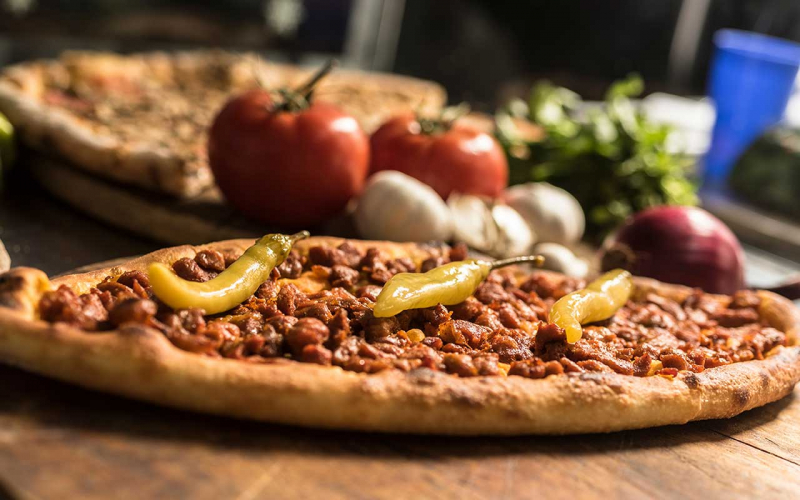
nomadparadise.com 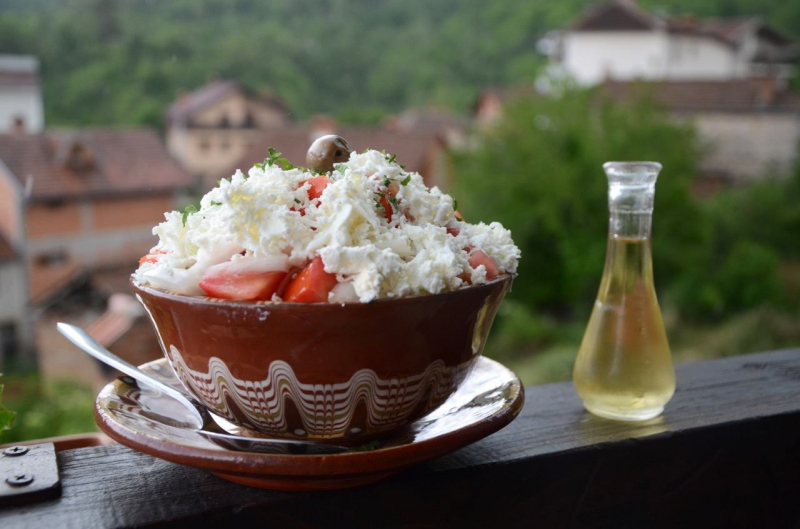
chasingthedonkey.com -
One of the best things about visiting this beautiful country is that it’s an incredibly affordable place to travel. A delicious meal in a restaurant will set you back no more than $7, and a night in a double room will set you back no more than $25. If a room costs $30 per night, it almost certainly includes breakfast. You can save up to $10 per night during the off-season, but you may have to haggle for this discount. A private room costs about $15 near the capital's center, and a dorm bed costs about $6.
The food and drinks are very reasonably priced. In local bars, a cup of coffee costs about $1, and a pizza costs about $4.5. In supermarkets, a bottle of water costs around 20 MKD, or less than $0.5, and an ice cream costs around $1. A typical restaurant lunch costs around 300MKD, or less than $7. The same can be said for a typical dinner. North Macedonia's public transportation, including taxis and car rentals, is also inexpensive. A five-day car rental costs around $100-120, and a local bus ticket costs around 35MKD ($0.4). Because it is a small country, bus and train tickets for an intercity network are reasonably priced.
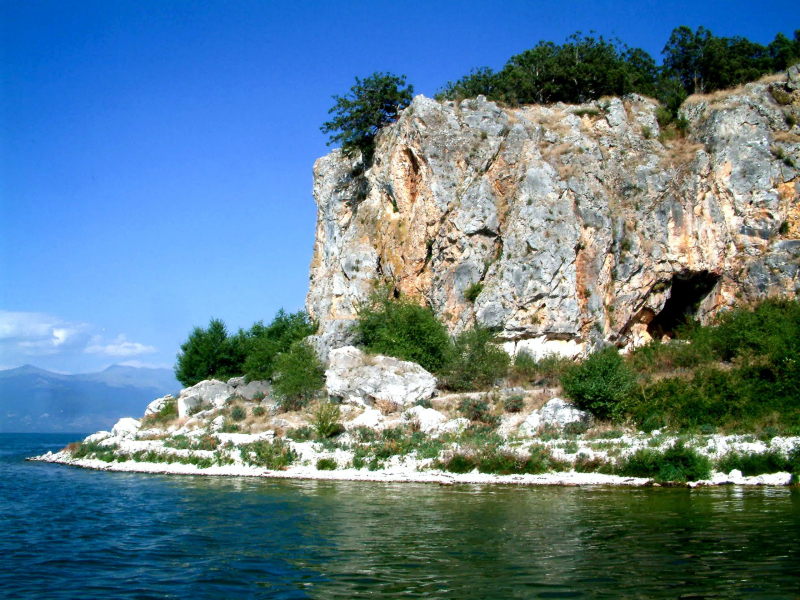
icbss.org 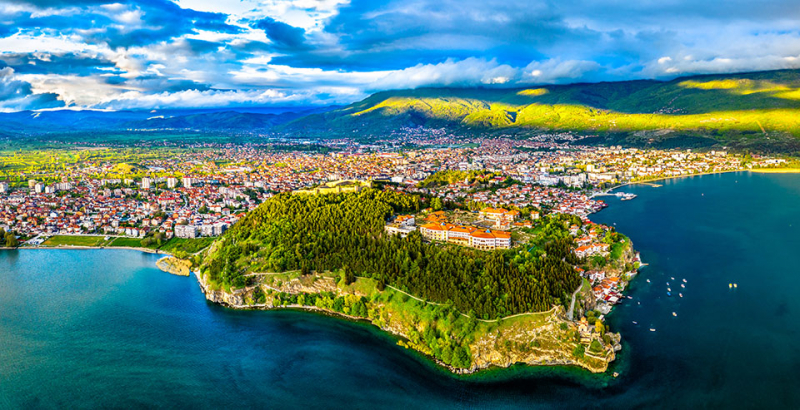
ceoworld.bit -
Ohrid Summer Festival, among interesting things to know before traveling to North Macedonia, is one of biggest and most well-attended events, welcoming thousands of visitors from all over the world to join in the festivities. The event, a month-long music, theater, and dance festival, takes place in the picturesque city of Ohrid, which has a history dating back to the 4th century BC, when the ancient Greek Dassaretae tribe lived on Lake Ohrid.
At the festival, you can see professional and amateur performers perform plays, dance and music concerts, as well as operas and many other exciting events, all of which you can plan ahead of time when the festival program is released. Ohrid promises to be a star-studded cultural event where you can watch shows in unique venues like the town's ancient outdoor theater or the 9th century Church of Sofia, which has hosted such renowned performers as Belgian violinist Vadim Repin and Russian opera star Elena Vasiliyevna Obraztsova.
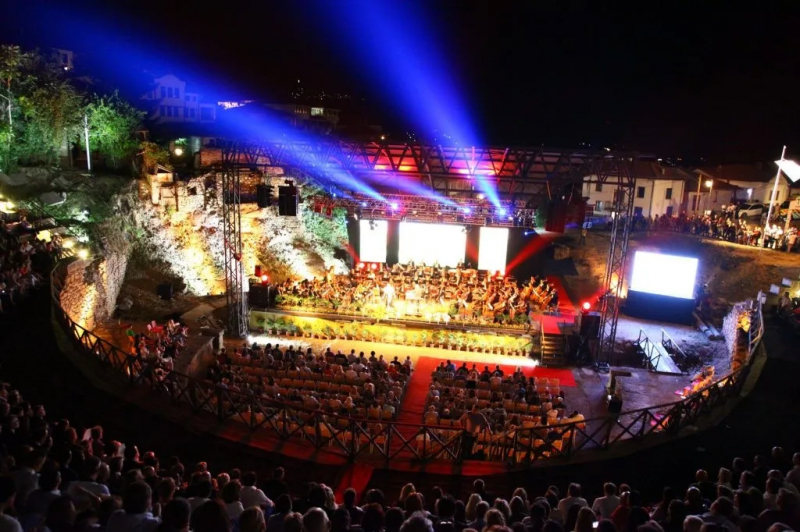
discoveringmacedonia.com 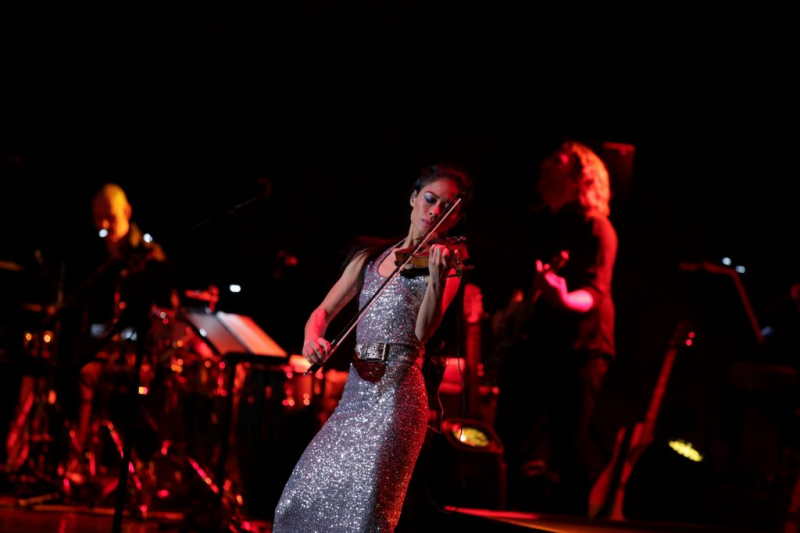
vanessamae.com -
Despite the fact that wages in Macedonia are traditionally low, there is no tipping culture. You are not expected to tip, but as a tourist, if you enjoy the service, it is a nice and appreciated gesture to leave a small token of your appreciation, as it is in other countries. In bars and restaurants, if you notice a service charge on your bill, you don't need to tip at all. However, this is more likely to occur in popular tourist areas or major cities. There's a good chance there won't be a charge, and you'll be able to decide whether or not to tip. In this case, a general guideline is to aim for 10% of the bill's total cost. If the service was really exceptional, you might like to think about leaving 15% as a maximum amount.
Tour guides do not expect a tip, but if you had a good time and found the guide to be helpful, consider tipping 5 to 10% of the tour cost. When it comes to taxi drivers, it's a good idea to set your rate before getting in the car; this way, you won't have to tip because everything is included in the price you agreed on. However, if you received excellent service, such as a free tour on the way with a knowledgeable driver, you might consider adding a little extra! However, to avoid typical tourist scams, only take a taxi from a registered taxi rank. If you have received excellent service from your hotel staff, you could tip them also; however, they will not expect it. Anything up to 20 MKD is average.
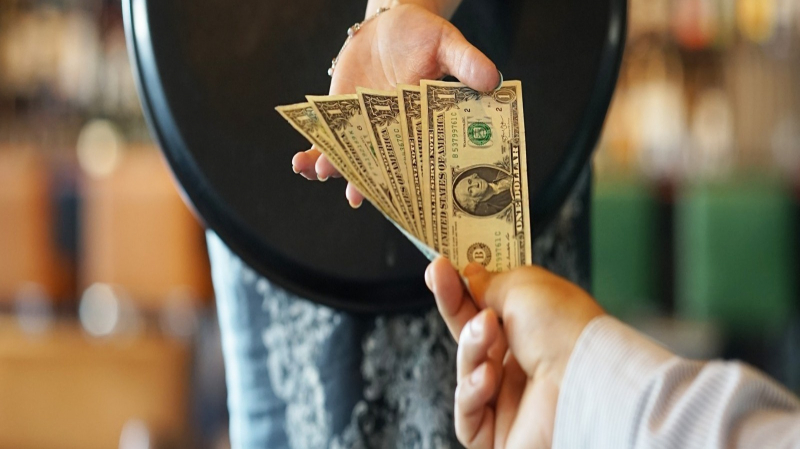
mashed.com 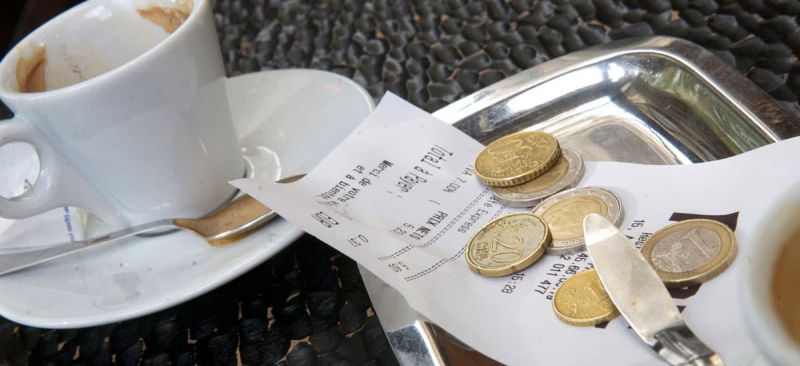
thesavvybackpacker.com -
Macedonian-Bulgarian, Macedonian-Albanian, and Macedonian-Greek relations are all hotly debated topics. The majority of Macedonians have strong political feelings toward their neighbors, and they will not hesitate to express them. Politics is frequently mentioned over a cup of coffee in casual conversation. To avoid upsetting your hosts or newfound acquaintances, you should steer clear of topics like the 2001 war against the NLA, Macedonia's division during the Balkan conflicts, and Macedonia's potential membership in the European Union or NATO. Don't be afraid to bring up Josip Tito or the communist era.
Because of the current situation in Kosovo, you should exercise extreme caution when discussing politics, as there is a significant Albanian minority here. You are free to ask as many questions as you want (within reason), but no comments are permitted. Remember that one out of every four people you meet on the street is Albanian, with much higher percentages in the west, and tensions between the Macedonian and Albanian populations can be severe at times. To summarize, keep your political opinions to yourself.
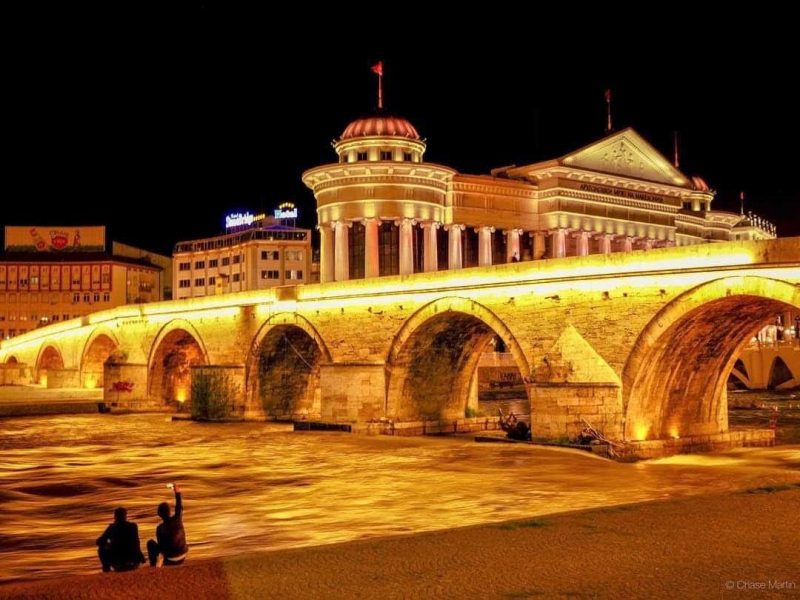
global-goose.com 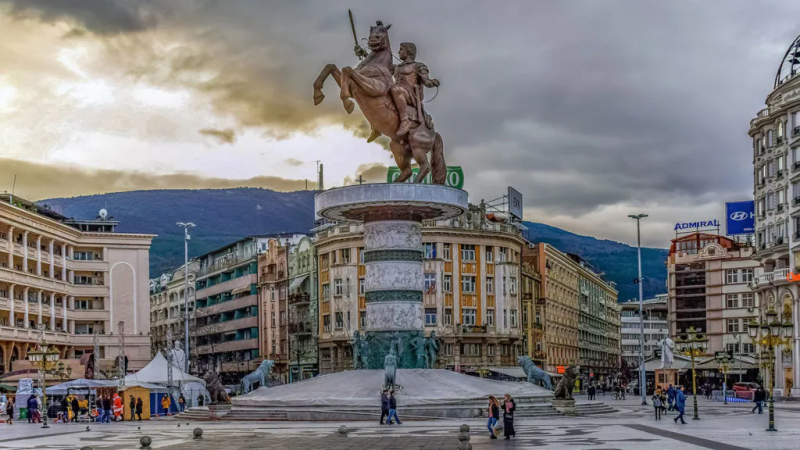
trafalgar.com












